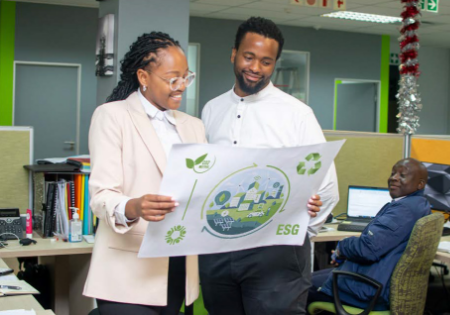
capsa
The 13th Conference on Asphalt Pavements for southern Africa (CAPSA) will be held at Champagne Sports Resort in the Central Drakensberg region of KwaZulu-Natal Province, South Africa on 15 – 18 October 2023.

Mahendren Manicum – Chairman CAPSA 23.
The theme for CAPSA ‘23 is Leading-Edge Technology to Underpin Sustainable Road Provision
Focus areas
The conference theme has been subdivided into following Focus Areas within the context of flexible road pavements.
Focus Area A – Resilient road infrastructure
The challenges relating to climate change and the implementation of a circular economy will be presented and discussed, while exploring solutions that will address:
- Ways to endure climate change and associated extreme weather through designing infrastructure for resilience.
- The exploitation of material resources to underpin a circular economy through the re-use of materials in bitumen stabilised gravel bases, asphalt mixes, etc.
- The optimal deployment of human capital through a review of aspects such as the 4thIndustrial Revolution on human capital
Focus Area B – Asset Preservation
New innovative methods and digital technologies that will optimise the road life cycle delivery and enhance the preservation of road pavement assets will be explored and discussed. Interactive sessions will also address:
- A nationally structured approach to improved asset preservation
- The development and use of data science in pavements
- Practical methodologies to enhance the effectiveness of routine maintenance
Focus Area C – Performance based binder specifications
The status quo of the current SA PG specification will be critically appraised as a guide for future developments to ensure that available binders will perform adequately in respect of:
- Extended durability
- Prevailing and projected climatic conditions
- Fatigue requirements
- The changing market
Focus Area D – Advancing design of flexible road pavement
The way forward on structural design of roads will be presented from both a South African and an international perspective. This will include solutions on how to attain novel, yet implementable perspectives for advancing fit-for-purpose road designs that are optimised to be cost-effective and sustainable. Discussions will cover aspects such as:
- The new South African Road Design System,
- Applications of nanotechnology for the upgrading of low-volume roads;
- Promoting the need for pavement designs that will address aspects such as resilience to climate change, increased design periods and reduced maintenance.
- Strengthening the knowledge base on aspects such as interlayer bond strength
- Improved understanding of modelling of distresses.
Focus Area E – Balanced asphalt mix design
Papers presented and discussions will focus on:
- Transition from volumetric design procedures as a means of attaining performance characteristics to a balanced mix design approach whereby performance characteristics and functional properties are targeted direct during in the design procedure
- Examination of new test methods to expedite laboratory design procedures.
- Review of benefits and risks associated with the use of recycled materials in asphalt mixes.
- The need for adaptation of performance criteria in the light of climate change
Focus Area F – Design of chip seal surfacing
While the design of chip seals is a mature practice on the subcontinent, the quest for refinement of methods to cope with the changing environment is ongoing. Hence, in pursuance of this goal, CAPSA will examine:
- The development of more efficient seal types and designs to address climate change
- Improved classifications of seal design binders based on performance history
- Binder rheology and performance classification of seal binders
- Advances in global seal design practice
Focus Area G – Attainment of design objectives during construction
The final objective of any pavement design process must be the construction of a pavement that attains the design objectives. Converting pavement designs into practice is fraught with difficulty, and therefore the processes used in pavement construction must intentionally use all the available and appropriate current technology to enhance the quality of the final product.
To work towards this goal, local and international contributors will provide insight on and explore:
- Digitization of Quality Control and as-built data
- Building Information Modelling (BIM)
- New techniques for monitoring quality of construction
- Uniquely southern African solutions for a constrained market
- Available new technologies and their applications






















